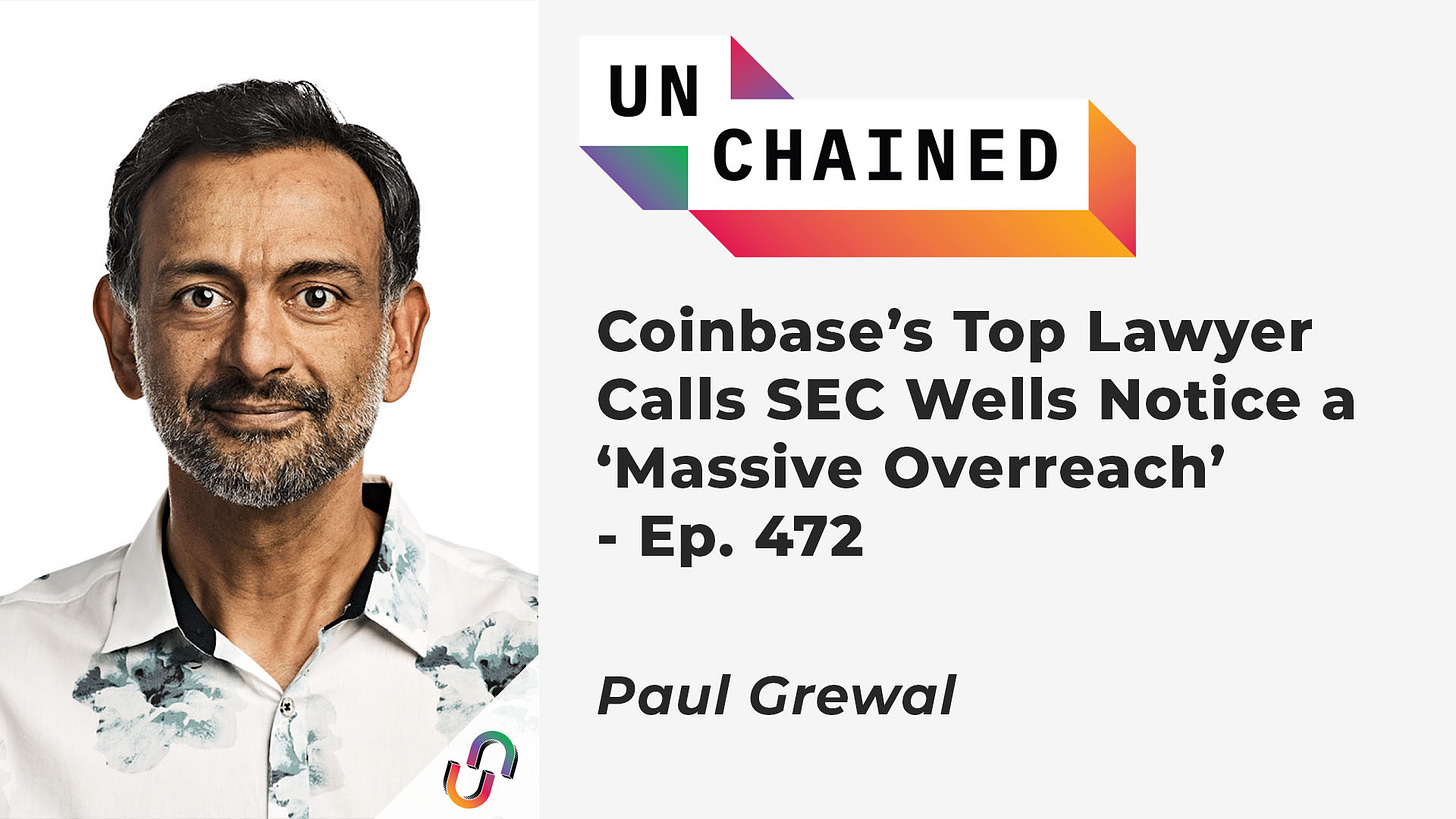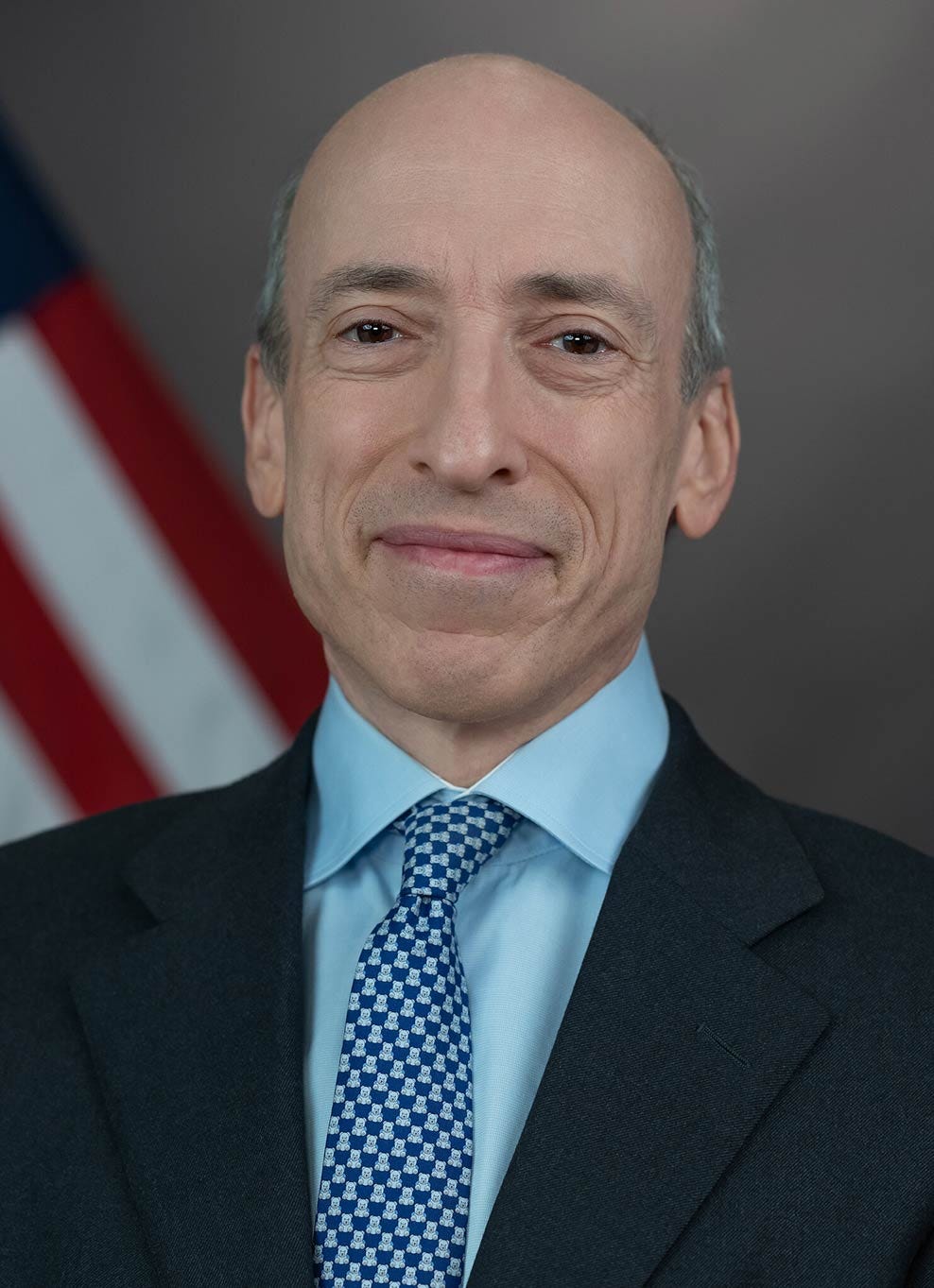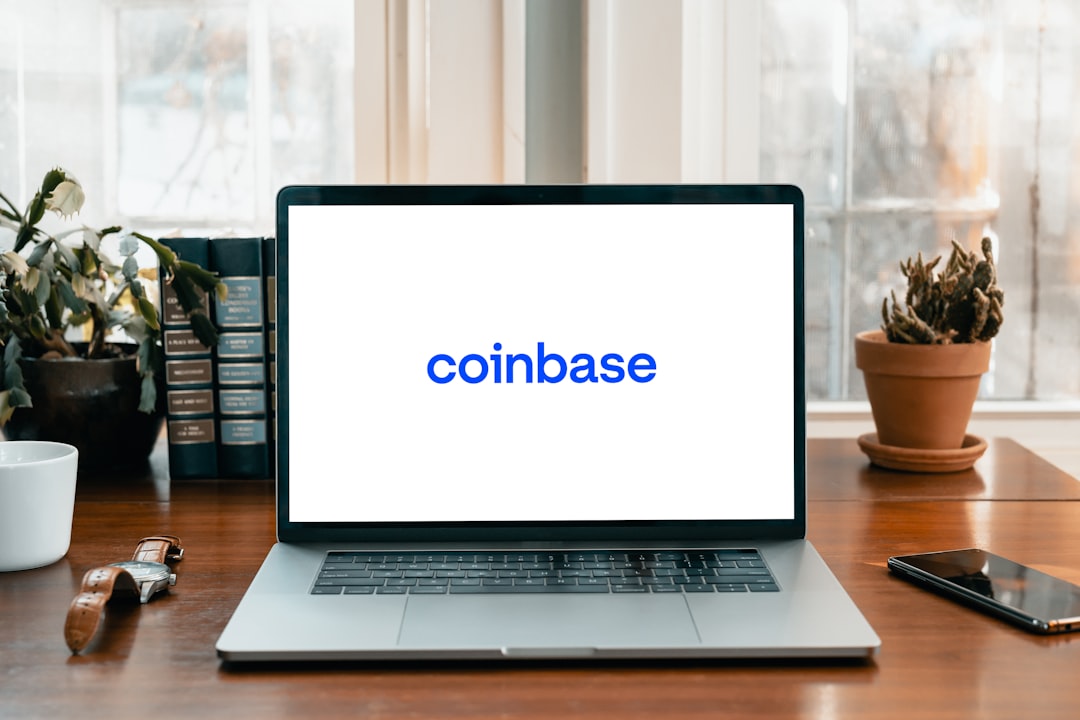Do Kwon Is Arrested 🚨
Weekly News Recap: 🎙️ New pod on the SEC vs. Coinbase fight, 😱 Do Kwon gets charged, 💰 Balaji's $1 million bet, and more ❕
Coinbase’s Top Lawyer Calls SEC Wells Notice a ‘Massive Overreach’
On this Friday’s episode of Unchained, Paul Grewal, chief legal officer of Coinbase, gave the backstory behind Coinbase’s discussions with the Securities and Exchange Commission before the agency issued a Wells Notice to the exchange this week.
“We asked the Commission once we received word that this notice was coming, “Can you tell us what particular tokens give you concern? Can you explain to us why staking in our arguments that staking is not a security are somehow flawed?” he explained. “And over and over again, we were told that we would have to simply rely upon the guidance that the SEC has issued and the statements that the chair has made from time to time that all assets effectively other than Bitcoin are security. So it has not been a productive conversation.”
Grewal talks about how Coinbase’s activities were detailed in its S-1 filing with the SEC when it went public, whether the collapse of FTX changed the tenor of the conversations with regulators, and what Coinbase’s next steps are going forward. Be sure to check out this episode on the latest escalation in the battle between the industry and the SEC.
Weekly News Recap
Montenegro Arrests Do Kwon, While New York Prosecutors Charge Him With Fraud
Early Thursday, Montenegrin police arrested an individual suspected of being Do Kwon, cofounder and former CEO of Terraform Labs and one of the "world's most wanted fugitives," according to Filip Adzic, Minister of Interior of Montenegro.
Kwon was apprehended at the Podgorica airport while trying to fly to Dubai with forged Costa Rican documents. He and his traveling partner, Terraform Labs’ CFO Hon Chang Joon, were allegedly carrying falsified Belgian documents, according to Interpol, and the police also took three laptops and five mobile phones from the two. South Korea, the United States, and Singapore are all seeking his extradition.
Later in the afternoon, prosecutors in the Southern District of New York charged Kwon with eight counts, including securities fraud, commodities fraud, wire fraud, and market manipulation. These charges are on top of accusations of fraud by the U.S. Securities and Exchange Commission (SEC) a month ago.
Kwon is wanted for financial crimes related to the management of his company which created the Terra blockchain. The collapse of the Terra/Luna ecosystem in May last year resulted in losses exceeding $40 billion.
Flagstar-Signature Deal Excludes $4 Billion in Digital Asset Deposits
The sale of Signature Bank's assets to Flagstar Bank, a subsidiary of New York Community Bancorp, did not include its crypto business. That was comprised of approximately $4 billion of deposits, according to the Federal Deposit Insurance Corporation (FDIC). The FDIC confirmed the sale but said that depositors associated with the digital banking business would receive their deposits directly from the FDIC.
The decision has sparked criticism from industry watchers, with some suggesting that regulators are trying to "kill" crypto. The Blockchain Association has launched an investigation into allegations of de-banking of crypto firms and actions taken by regulators that may have contributed to the failures of Signature and other banks.
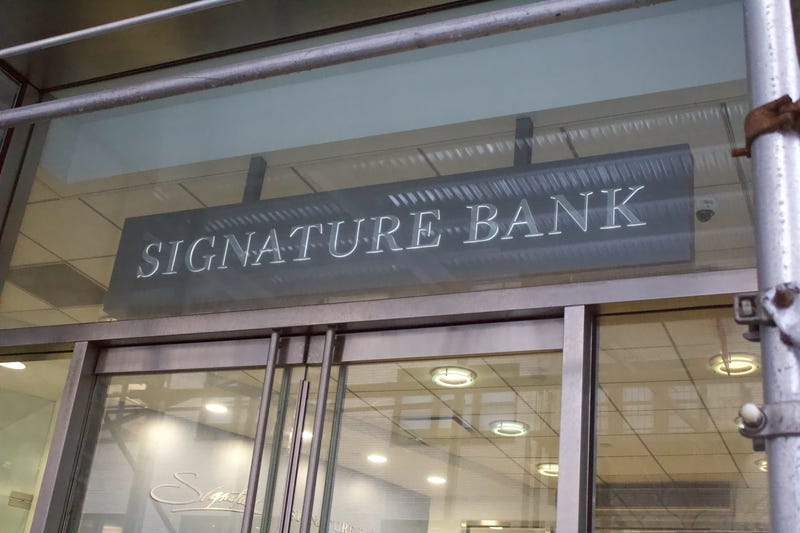
Speaking of the FDIC, the Financial Times reported that back in January, short seller Marc Cohodes warned the agency that Signature was involved in illegal crypto transactions and lacked proper controls, leading to its collapse and raising questions about its risk management and regulatory oversight.
Balaji Srinivasan Prognosticates Hyperinflation and Bets $1 Million
Following the recent bank collapses, news of the U.S. Government printing $300 billion and activating the Bank Funding Term Program, tech founder Balaji Srinivasan is predicting a catastrophic future for the U.S. economy.
Srinivasan accepted a $1 million bet from social democrat James Medlock that the U.S. would not enter hyperinflation. Srinivasan bet one Bitcoin (BTC) against that thesis at 40:1 odds and set the term at 90 days – meaning he is betting the U.S. dollar enters hyperinflation within 90 days. He proposed using a mutually agreeable custodian to ensure the bet's settlement in case of digital dollar devaluation, suggesting a smart contract with USDC stablecoin instead of US dollars. The wager has drawn significant attention from the crypto community.

Srinivasan asserts that banks and regulators have misled depositors and dollar holders regarding bank insolvency, similar to the 2008 financial crisis. He argues that investors in long-term Treasuries were wiped out in 2021, and those in short-term Treasuries could face the same outcome in 2023.
In this context, the tech billionaire thinks Bitcoin will outperform all risk assets and that the USD currency is going to be worthless.
While some assert that he truly believes what he’s saying, others surmise that this is a marketing ploy, since the attention he has gotten off this bet would have been much more expensive in a traditional way. This week’s episode of The Chopping Block discussed the bet, so make sure you check it out.
FTX Recovers $460 Million in Assets From Modulo Capital
FTX, the crypto exchange founded by Sam Bankman-Fried, has entered into a settlement with Modulo Capital, an "obscure crypto fund," and will recover $460 million in assets for stakeholders. Bankman-Fried had given a total of $475 million to Modulo through Alameda Research's venture portfolio, according to recent court documents.
As the fallout of FTX continues to unfold, the company’s liquidators are now suing the liquidators of Bahamas-based FTX Digital Markets, accusing it of wrongfully claiming rights over the firm's assets. They allege that FTX DM was created as an "offshore haven" for fraud.
FTX's new management argues that FTX DM was a legal nullity, and its entire existence was part of a criminal conspiracy. They also claim that Bankman-Fried maintained close relationships with Bahamian law enforcement agencies and political figures to minimize his criminal and civil exposure. As evidence of fraud, the FTX debtors highlighted a $143 million transfer from FTX Trading and Alameda's accounts to FTX DM through Farmington State Bank and Silvergate Bank.
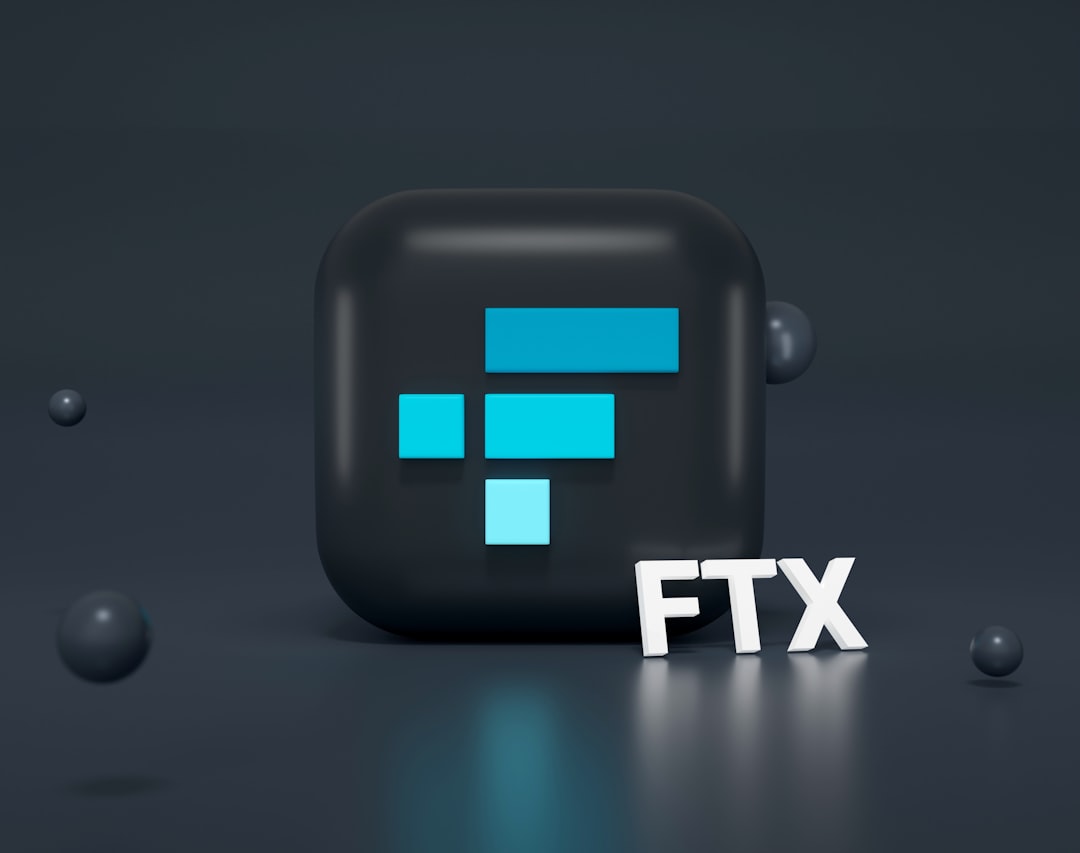
In related news, according to a leaked email correspondence obtained by the Washington Examiner, SBF met with FDIC Chairman Martin Gruenberg months prior to the exchange’s collapse, where they discussed FTX's "superior risk model" and the need for crypto regulations.
Lastly, according to a presentation filed to the bankruptcy court on Friday (pdf), Bankman Fried's firms had a $6.8 billion gap in its balance sheet during its bankruptcy filing last November, which included major shortfalls for FTX.com and FTX.US, while Alameda Research and FTX Ventures held positive net assets.
Arbitrum Airdrop Goes Live, Crashes Site
Layer 2 Arbitrum airdropped its token, ARB, on Thursday, making 1.16 billion tokens, or 11.6% of the total supply, available to early users. The website crashed immediately after, while the token price settled at about $1.45 as of press time.
The Ethereum scaling solution will now also become a DAO, with token holders in charge of governance decisions for the protocol. In an unusual move, the DAO will be self-executing, meaning that the governance decisions will result in the protocol upgrades being automatically integrated on-chain. It will be one of the more decentralized governance models, though a 12-member Security Council will also have control over the codebase in cases of emergency.

SEC Sues Justin Sun for Securities and Market Manipulation
The U.S. SEC filed a lawsuit against Justin Sun, the founder of Tron, over the alleged sale and airdropping of unregistered securities, fraud, and market manipulation. The SEC accused Sun of creating an "extensive wash trading" program to boost the trading volume of Tron's native token TRX and BitTorrent's (BTT) tokens.
Sun and his companies also allegedly coordinated a promotional campaign with celebrities, including Lindsay Lohan and Akon, without disclosing payments made to them. The SEC's case highlights the potential risks that investors may face with unregistered securities in the crypto industry.
Celsius Custody Account Holders to Receive Majority of Crypto Assets
Celsius custody account holders, who were not in the yield-bearing program, are set to receive 72.5% of their cryptocurrency holdings after a federal judge approved a settlement in the company's bankruptcy case.
Judge Martin Glenn of the U.S. Bankruptcy Court for the Southern District of New York approved the settlement between Celsius debtors, the unsecured creditors' committee, and an ad hoc group of custodial account holders. Account holders must opt into the settlement, which will settle all causes of action against Celsius concerning their custody assets. The 72.5% return will be paid over time, excluding transaction fees.
In January, Glenn ruled that assets in Celsius Earn accounts, which earned yield for their customers, belonged to the company, not customers.
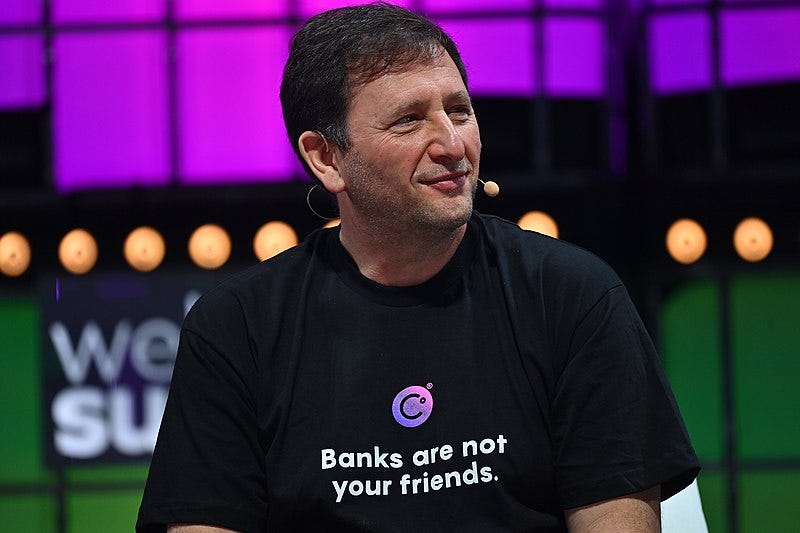
DefiLlama Drama
A drama unfolded within the DeFiLlama team over a potential token launch. Pseudonymous developer "0xngmi" accused the company's founders of attempting a "hostile takeover" and launching a token without support, prompting team members to fork DeFiLlama. The new aggregator, called Llama.Fi, is strikingly similar to DeFiLlama in design and layout.
Despite these claims, some DeFiLlama employees insist there was no hostile takeover. The root of the conflict appears to be disagreements over monetizing the platform. Co-founder "0xLlam4" reportedly favored launching a token, while other team members were against, citing concerns about the token's value and legality.
DeFiLlama later clarified on Twitter that there was no LLAMA token planned and that any airdrop would be discussed with the community.
Coinbase Wanted to Rescue Circle
During the turmoil surrounding Silicon Valley Bank's (SVB) collapse, Coinbase reportedly offered Circle an instant $3.3 billion line of credit to ensure full liquidity for USDC's reserves after the stablecoin lost its peg to the U.S. dollar. The arrangement was never executed due to the FDIC’s intervention, which guaranteed full repayment to SVB depositors, causing USDC to regain its dollar peg within hours. Coinbase's offer reflects its partnership with Circle, established in 2018 through the CENTRE consortium, which enables tokenization and redemption of USDC into dollars on both platforms.
Speaking of the USDC depeg, Circle CEO Jeremy Allaire confirmed that a Twitter thread from Circle’s chief strategy officer and global head of policy promising USDC holders a one-time bonus in the form of an airdrop was fake due to his account being hacked.
Coinbase Takes Arbitration Dispute to U.S. Supreme Court
Coinbase appeared before the U.S. Supreme Court on Tuesday, marking the first time a cryptocurrency-related case reached the highest court of law. The issue at hand is whether Coinbase should be granted the right to halt customer lawsuits from proceeding through the courts while arbitration disputes are resolved. The court is expected to issue a ruling by June, potentially setting a precedent for future class-action lawsuits against major crypto exchanges.
SEC Subpoenas SushiSwap
The SEC didn’t stop at Coinbase and Justin Sun this week. It also served a subpoena to the entity behind DeFi app SushiSwap. The decentralized autonomous organization (DAO) behind the protocol is considering the creation of a $3 million legal defense fund.
Head chef Jared Grey disclosed the subpoenas in a proposal on the platform's governance forum but did not reveal the reasons behind the regulatory inquiry. The proposed legal defense fund would cover legal costs for core contributors and consist of $3 million worth of USDT, coming from various sources such as Kanpai, Sushi's fee-diversion protocol, grants, and SUSHI sales. The community is currently voting on the proposal, with 72% of voters in favor so far.
Euler Finance Hacker Returns Some Funds
On Monday, the hacker responsible for the Euler Finance exploit returned a small portion of the $197 million worth of crypto stolen, amounting to 3,000 ETH ($5.4 million). This development led to DeFi lending platform Euler Finance entering negotiations with its anonymous exploiters to recover the remaining stolen funds. The ongoing discussions took place through on-chain messages between both parties.
On Wednesday, another twist occurred when the infamous Ronin hacker sent a suspicious encrypted message to the Euler hacker, which on-chain analysts believe could be a phishing attempt. The Euler team advised the hacker to be cautious while using the encryption tool mentioned in the message. In response, the Euler hacker confirmed their intention to return the stolen funds to the Euler team.
These developments have left market participants undecided on whether the blockchain messages between the two hackers were part of an actual attempt to steal funds or just a show put on by both parties. Last week, the Euler hacker sent 100 ETH to the Ronin hacker's wallet address, causing confusion over potential links between them.
FUN BITS
Ginny from Unchained has something to say about FTX clawing back funds from Modulo Capital. Here she gives her take.
If you enjoyed this, don’t forget to follow Unchained on all social media platforms. Find the links below ⬇️
🔗Join Unchained Premium to get access to:
🎙️ Behind-the-scenes interviews, in which I talk with crypto experts and entrepreneurs to learn all about the latest developments in the industry.
💬 A subscriber-only Telegram group, where you can talk with the other members of the Unchained community, build a network in crypto, and talk directly with me and the Unchained team!
📰 Transcripts of all the shows, for subscribers only.
If you liked what you read:
👍 follow me on Twitter, Facebook, Instagram, TikTok, Mastodon and/or LinkedIn
🎧 subscribe to Unchained on YouTube, Apple Podcasts, Spotify, Google Podcasts, Pandora or wherever you get your podcasts
👯♀️ share Unchained with a friend
and/or 📚buy my book, The Cryptopians: Idealism, Greed, Lies, and the Making of the First Big Cryptocurrency Craze




